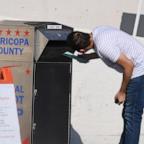That's Cold: How Exclusion Can Leave You Chilly
New research suggests that those who are socially excluded actually feel colder.
Sept. 16, 2008— -- As it turns out, those who are socially excluded and "left out in the cold" literally feel as if they are colder. So suggests new research released Monday in the journal Psychological Science.
"When we talk about social experiences we usually think of them as abstract ideas, like morality or social exclusion, but ... these perceptions are not as abstract as you think," said lead study author Chen-Bo Zhong, assistant professor in the department of organizational behavior and human resource management at the University of Toronto.
"These perceptions are actually deeply connected to physiological experiences and bodily perceptions. Our social experience on whether we've been socially included or rejected and isolated actually has consequences on physiological experiences so that we literally feel cold."
In order to measure the participant's perception of temperature after experiencing social exclusion or isolation, the researchers asked half of the study subjects to recall a personal experience in which they had been socially excluded. They then asked the other half of the group to recall an experience in which they felt socially accepted.
After recalling these social experiences, the researchers told the subjects that the building manager wanted to survey how comfortable the temperature was in the building, and had all the volunteers estimate the temperature in the room. They found that the subjects' estimates of the temperature ranged from a low of 54 degrees to a high of 104 degrees.
The reason for the wild array of guesses? Zhong says it is because those who recalled socially isolating experiences literally felt cold after dwelling on these memories. In contrast, those who recalled socially-inclusive experiences reported feeling much warmer than the actual room temperature.
"We speculated on reasons for this and one reason we think is that in our daily lives we experience these two things together -- temperature and social experience -- in the sense that when we're kids, being closer to the caretaker brings us warmth, and distance or rejection from the caretaker means you feel more cold," Zhong explained. "So these correlations get encoded in our memory, and there are psychological theories on how these perceptions change specific experiences."




